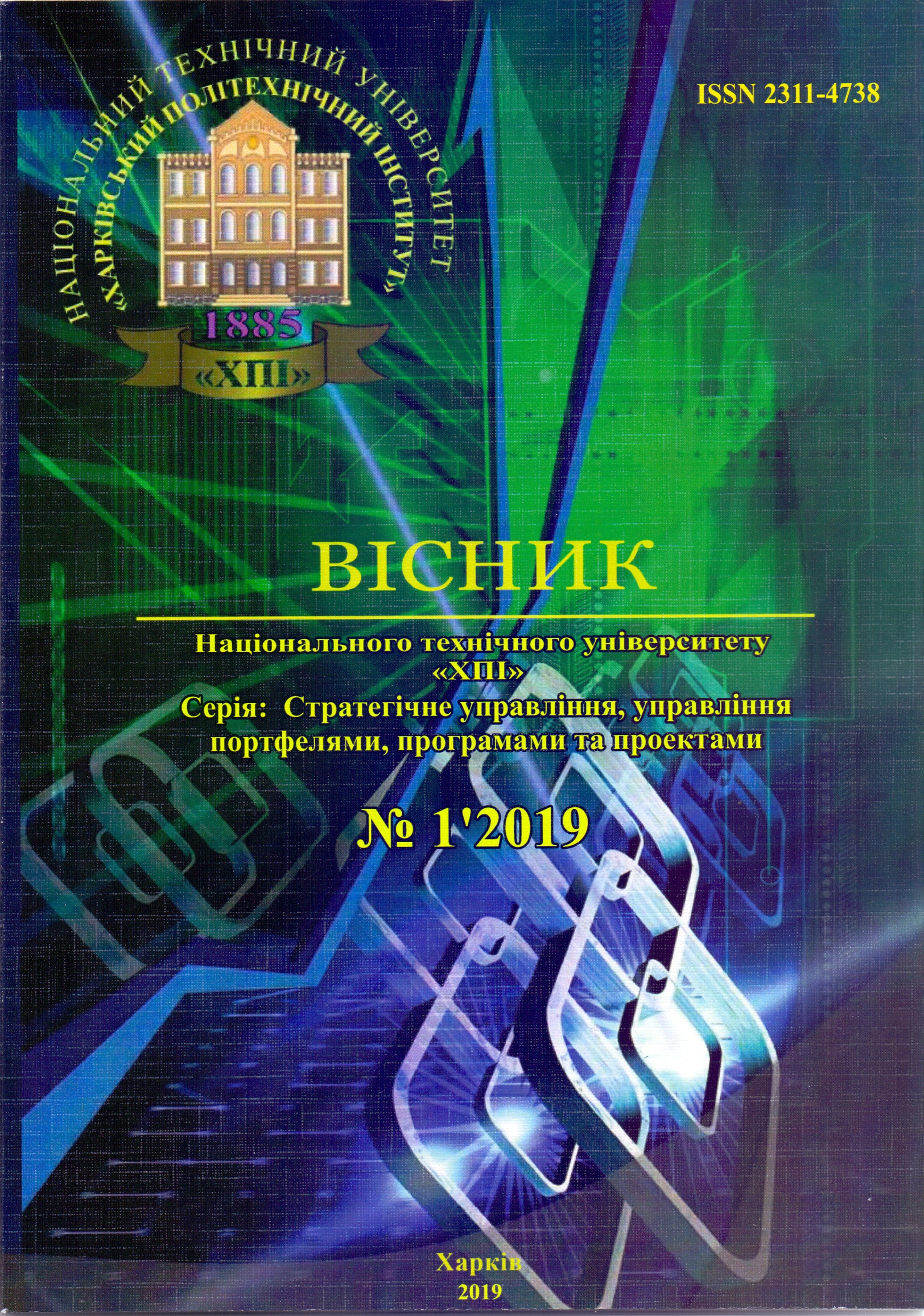MODERN APPROACH IN TEACHING PROJECT MANAGEMENT FOR IT SPECIALISTS
DOI:
https://doi.org/10.20998/2413-3000.2019.1326.8Keywords:
project management, schedule and cost estimation, Agile techniques, Scrum, Risk Management Plan, Control Strategy PlanAbstract
The modern world is not thinking without information technology. Training specialists not only fluent in IT technologies, but also those who know how to manage people and resources, is one of the main tasks of the IT university. This article focuses on teaching project management for IT students. The course covers the necessary set of knowledge and skills required for IT project managers. The main goal of the course is to teach students to focus on the organizational and managerial aspects of program projects. Along with various methods of project management (planning, budgeting and risk analysis), the main project management tools are considered; leadership principles; customer relations; liability issues; intellectual property issues; privacy issues. The article discusses the modern approach to teaching as a blended learning technology. This approach, combining traditional forms of education with elements of e-learning, is well applicable for a project management course. The features of the teaching of this course presented in the article are based on the personal responsibility of students for their own learning results. This also includes training based on mastery, an environment of high achievements, learning by doing. Actual methods in education as learning by doing, inverted learning and gamification are considered. The work also highlighted the role of “Project Management” in the student’s general educational trajectory. In addition, the article presents the experience of implementing and teaching this course at the International University of Information Technologies. The Project Management course is one of 12 courses in the Software Development Program (SDP) cycle, presented by iCarnegie.References
SDP08 - Project Management. Available at: http://moodle.icarnegie.com /moodle/course/view.php?id=171.
Royce, Walker. Software Project Management: A Unified Framework. Reading, MA: Addison Wesley Longman, Inc., 1998. ISBN: 0-201-30958-0.
Mike Cohn. Succeeding with Agile: Software Development Using Scrum. Addison-Wesley Professional, November 5, 2009.
Steve McConnell, Software Project Survival Guide, Microsoft Press, October 22, 1997.
Ualiyeva I.M., Satybaldiyeva R.ZH. Experience of Teaching IT in IITU. Innovations in Education and Problems of Improvement of Education Quality – International Scientific and Methodological Conference preceedings. KazSU, Almaty, 2012.
Bektemyssova G.U., Satybaldiyeva R.ZH. The role of students self study in using. Icarnegie materials. Policy. Almaty, 2012.
Pant I., Baroudi B., Project management education: The human skills imperative. International Journal of Project Management, v.26, issue 2, February 2008, pp 124-128.
Jolamanova B.D., Satybaldiyeva R.ZH., Moldagulova A.N. Forms and methods of students self study/with teachers organization in technical institutions. III International scientific and practical conference preceeding: «ICT: education, science, innovations». Almaty, 2013.
Moldagulova A.N., Satybaldiyeva R.ZH. On problems of delivering laboratory classes in institution. III International scientific and practical conference preceeding: «ICT: education, science, innovations». Almaty, 2013.
This is a FREE digital ebook. V 1.1. Available at: www.efrontlearning.net www.talentlms.com, January 2014.
Satybaldiyeva R.ZH., Ualiyeva I.M., Moldagulova A.N. Model of colobaration between enterprise and universities in formation of professionals in Information Technology sphere. Modern problems of science and education. 2012, no. 5; Available at: http://www.science-education.ru/105-7115.
Frank Tsui, Orlando Karam. Essentials of Software Engineering. Jones & Bartlett Learning, Apr 22, 2010.
Carol L. Hoover, Mel Rosso-Llopart, Gil Taran. Evaluating Project Decisions: Case Studies in SE. Addison-Wesley Professional. 2009.
Downloads
Published
Issue
Section
License
Copyright (c) 2019 Aiman Moldagulova, Ryskhan Satybaldiyeva

This work is licensed under a Creative Commons Attribution-NonCommercial-ShareAlike 4.0 International License.
Our journal abides by the Creative Commons copyright rights and permissions for open access journals.
Authors who publish with this journal agree to the following terms:
Authors hold the copyright without restrictions and grant the journal right of first publication with the work simultaneously licensed under a Creative Commons Attribution-NonCommercial-ShareAlike 4.0 International License (CC BY-NC-SA 4.0) that allows others to share the work with an acknowledgement of the work's authorship and initial publication in this journal.
Authors are able to enter into separate, additional contractual arrangements for the non-commercial and non-exclusive distribution of the journal's published version of the work (e.g., post it to an institutional repository or publish it in a book), with an acknowledgement of its initial publication in this journal.
Authors are permitted and encouraged to post their published work online (e.g., in institutional repositories or on their website) as it can lead to productive exchanges, as well as earlier and greater citation of published work.

